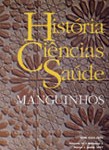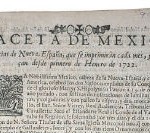December 1st, World Aids Day

According to Unaids data, people living globally with HIV/Aids rose from 39.5 million in 2022 to 39.9 million in 2023. At the same time, new HIV infections have dropped from 1.4 million to 1.3 million in the same years, as well as deaths from the disease.
In Brazil, measures introduced in the Unified Health System (SUS), such as free self-testing and HIV Pre-Exposure Prophylaxis (PrEP) – medication that helps prevent HIV infection before risk exposure – have represented progress in combating the disease. The country, however, still faces many challenges, such as inequalities in access to diagnosis and treatment and prejudice.
In World Aids 2024, we prepared a selection articles, interviews, and stories about Aids already published in our journal and blog. Check it out:
The history of the Aids epidemic in Brazil: have we reached the end of it? Richard Parker analyzes the history of AIDS in Brazil and discusses the prospects for the future of the epidemic.
Successes and setbacks in the fight against Aids The medical anthropologist Richard Parker, professor at Columbia University, examines the social and political aspects of HIV/AIDS in Latin America.
AIDS in historical perspective To mark the World AIDS Day, we have prepared a selection of articles, posts and stories that address different aspects of the history of AIDS, such as the decline of the AIDS program in Brazil, the successes and setbacks in the fight against Aids, public health campaigns, the response of international institutions and much more.
AIDS, Activism, and International Agencies in Brazil, 1987–1996 Marcos Cueto, Science editor of HCSM, published with Gabriel Lopes, “Braiding Public Health and Human Rights: AIDS, Activism, and International Agencies in Brazil, 1987–1996” Latin American Research Review (2022). This article examines the emergence of a synergy that allowed the early development of what was once considered the best anti-AIDS program in the developing world.
A global player in the politics of Aids Marcos Cueto, science editor of HCSM, and Gabriel Lopes, postdoctoral researcher at Casa de Oswaldo Cruz (Fiocruz), explore the Brazilian participation in international debates on whether antiretroviral drugs were commodities or public goods.
HIV/AIDS, its stigma and history Our science editors André Felipe Cândido da Silva and Marcos Cueto discuss the HIV prevention policy adopted in Brazil since December 2017: the pre-exposure prophylaxis.









